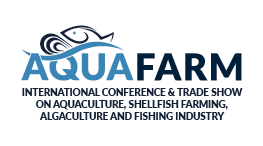Verifish, a Horizon Europe initiative, is enabling informed seafood choices across the continent
This article was featured in Eurofish Magazine 4 2025.

As Europe’s fishing and aquaculture sectors navigate increasingly complex sustainability demands, the need for transparent, science-based communication tools has never been more critical. The VeriFish project, a Horizon Europe-funded initiative, is addressing this challenge head-on by developing a comprehensive framework that bridges the gap between technical sustainability data and practical decision-making tools for consumers, producers, and policymakers alike.
The European seafood sector faces a unique paradox: while seafood represents one of the most widely traded food commodities globally, it remains among the most misunderstood by consumers. Issues surrounding overfishing, habitat degradation, labour practices, and nutritional misinformation create barriers that prevent stakeholders from making truly informed decisions about sustainability. VeriFish is transforming this landscape by providing the tools and infrastructure necessary for transparent, verifiable sustainability communication. In 2025, VeriFish has delivered a suite of groundbreaking outputs that represent significant milestones in sustainable seafood communication. These include the comprehensive Indicator Framework (D2.2), strategic communication guidelines (D4.1), detailed specifications for the mobile application (D3.2), and innovative media products (D3.3). Together, these deliverables form the foundation for transforming how Europe approaches seafood sustainability.
A holistic approach to sustainability assessment
At the core of VeriFish lies its innovative Sustainability Indicator Framework (D2.2)—a comprehensive system that evaluates seafood products across three interdependent pillars: environmental impact, nutrition and health, and socio-economic responsibility. This tri-pillar approach, detailed in the recently published framework deliverable, ensures that sustainability extends beyond traditional metrics to encompass the full spectrum of what makes seafood truly sustainable. The environmental pillar addresses the ecological footprint of both capture fisheries and aquaculture operations. Key indicators include overfishing status, gear type impact, bycatch levels, seafloor damage, biodiversity impacts, greenhouse gas emissions, and spatial management effectiveness. These metrics draw from authoritative sources including the FAO’s Global Record of Stocks and Fisheries (GRSF), FishBase, SeaLifeBase, the IUCN Red List of Threatened Species, and WISE-Marine databases. The framework’s strength lies in its interoperability with existing certification and governance schemes, supporting.

Verifish offers both the opportunity and support to European fisheries and
aquaculture operators to increase the sustainability of their activities.
Breaking new ground in sustainability communication, VeriFish incorporates a dedicated nutrition and health pillar that highlights seafood’s contribution to human dietary needs. Using databases such as EuroFIR’s FoodExplorer and the FAO/INFOODS uFish, the framework evaluates -protein quality, omega-3 content, micronutrient density, allergen risk, and sodium concentration. This innovative approach helps consumers understand the connection between choosing sustainable seafood and making healthy dietary decisions, moving the conversation beyond ecology to include personal and public health benefits. For the aquaculture sector, this presents new opportunities to communicate the nutritional advantages of responsibly farmed products. The third pillar ensures that seafood’s human dimension receives equal attention. Indicators evaluate working conditions, labour rights, wage fairness, health and safety standards, and adherence to international human rights conventions. Data sources include the International Labour Organization (ILO), the Global Slavery Index, Transparency International, and OECD governance indices. Special attention is given to protecting indigenous and small-scale fishers.
The VeriFish knowledge base allows data-driven decisions
Supporting the indicator framework is the VeriFish Knowledge Base (KB), a sophisticated semantic engine that integrates dozens of primary datasets into a coherent, machine-readable ecosystem. Built upon the established GRSF ontology, the KB expands to include biological, nutritional, geographical, governance, and socio-economic dimensions. The Knowledge Base incorporates data from EMODnet Biology, GBIF, FishChoice, Marine Regions, and national food databases, creating a robust infrastructure that follows FAIR data principles—Findable, Accessible, Interoperable, and Reusable. National authorities, retailers, and NGOs can access the data to generate real-time sustainability assessments and risk profiles for specific species or fishing areas. Future API integration will further enhance these capabilities, supporting everything from traceability systems to sustainability reporting.
The VeriFish mobile application represents the consumer-facing culmination of the project’s technical innovations. Available in multiple languages and optimized for both Android and iOS platforms, the app enables users to scan QR codes or search seafood products by name to receive comprehensive sustainability and nutrition profiles. Consumers receive easy-to-understand scores and guidance, while technical users—including food retailers and certification bodies—can access detailed indicator data and sources. For producers and processors, the app functions as an input interface where fishermen can enter catch data, vessels can upload documentation, and suppliers can validate sourcing chains.
Educational outreach to build ocean literacy
Recognizing that digital tools alone cannot drive behavioral change, VeriFish has also invested significantly in educational products. Central to the media strategy is “Fishy Businesses,” a strategy card game designed to foster awareness about species diversity, fishing pressures, and nutritional values. Illustrated in comic-book style, the game makes learning engaging for students, consumers, and industry stakeholders. Each species card features factual data on sustainability and nutritional status based on scientifically verifiable criteria including overfishing risk, bycatch impact, and nutritional value. The D3.3 deliverable specifies the development of a 12-month educational calendar featuring different seafood species alongside sustainability tips, nutrition highlights, and seasonal recipes. These calendars are being distributed through fishmongers, public libraries, school networks, and culinary training institutes. Additional materials include large-format posters on sustainable aquaculture practices, interactive gear-impact infographics, educational videos, and downloadable maps showing regional fishing patterns and risk zones. These resources support live events, museum exhibitions, and EU-wide ocean -literacy -campaigns.
Targeted communication strategies
The Initial Recommendation for How to Efficiently Communicate to Consumers About Seafood (D4.1) represents an -analysis of consumer behavior and communication preferences in the seafood sector. This deliverable identifies six distinct target personas, from eco-conscious millennials to health-focused parents The deliverable provides detailed guidance for communicating with each consumer segment, including practical examples for both wild-caught and farmed seafood products. These insights from D4.1 are being incorporated into draft CEN Workshop Agreement guidelines—a precursor to potential European standardization of sustainability messaging in the seafood sector.
VeriFish tools are currently undergoing pilot implementations and -stakeholder testing, preparing for-real-world -integration into national -labeling schemes, retail traceability platforms, and public food procurement standards.
Supporting regulatory compliance
For European fishing and aquaculture operators, VeriFish offers practical tools for meeting evolving sustainability requirements. The framework’s compatibility with existing certification schemes reduces compliance complexity while providing clear pathways for demonstrating environmental and social responsibility. The comprehensive data integration capabilities support various regulatory needs, from EU taxonomy alignment to sustainability reporting requirements. This positions VeriFish as essential infrastructure for navigating Europe’s increasingly complex sustainability landscape.
Beyond compliance, VeriFish creates new market opportunities for responsible producers. The consumer-facing tools enable direct communication of sustainability credentials, potentially commanding premium prices for verified sustainable products. The educational components build consumer awareness and demand for responsibly sourced seafood, expanding market opportunities for compliant operators.
Building tomorrow’s seafood infrastructure
The VeriFish project represents more than a research initiative—it constitutes strategic infrastructure for sustainability communication in one of Europe’s most complex food sectors. With the deliverables launched in 2025 and pilot -implementations -underway, the project is preparing for integration into existing market and regulatory systems. By translating abstract principles of environmental justice, nutritional wellbeing, and social -equity into practical, understandable formats, VeriFish is establishing the foundation for informed, intentional, and responsible seafood choices across Europe. As climate pressures intensify, consumer expectations evolve, and regulatory requirements expand, the -importance of such -comprehensive sustainability tools will only increase. VeriFish is not merely addressing current challenges—it is building the infrastructure to anticipate and meet future needs, ensuring a healthy relationship between Europeans and their marine resources.
For Europe’s fishing and aquaculture sectors, VeriFish offers both opportunity and support in navigating the transition to more sustainable practices. By providing the tools for transparent -communication and verified sustainability claims, the project empowers responsible operators to differentiate themselves in an increasingly conscious marketplace while contributing to the long-term health of marine ecosystems and communities. As the project moves from development to implementation, its impact on the future of European seafood sustainability is poised to be both significant and lasting.
Ixai Salvo, Eurofish,
ixai@eurofish.dk








